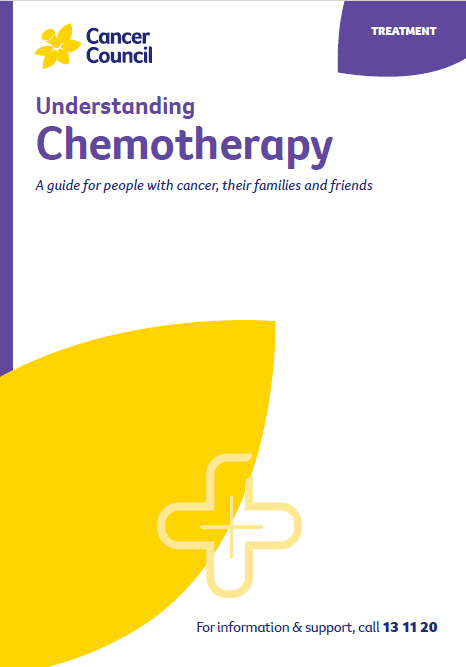- Home
- About Cancer
- Cancer treatment
- Chemotherapy
- Chemotherapy safety
Chemotherapy safety
While chemotherapy is used to treat cancer, it is a strong, cytotoxic (toxic to cells) medicine, so it is safest for people without cancer to avoid direct contact with the drugs.
Cancer (oncology) nurses and doctors often wear gloves, goggles, gowns or masks because they are exposed to chemotherapy drugs every day. When the treatment session is over, these items are disposed of in special bags or bins.
Learn more about:
- What happens after each session?
- Is there any risk to family and friends?
- Chemotherapy safety at home
What happens after each session?
After each chemotherapy session, the drugs may stay in your body for up to a week. During this time, very small amounts of the drugs may be released from the body in your vomit, urine (wee), faeces (poo), blood, saliva, mucus (phlegm), sweat, and semen or vaginal discharge.
Is there any risk to family and friends?
You may worry about the safety of family and friends while you are having chemotherapy. There is little risk to others (including children, babies and pregnant women) because they aren’t likely to come into direct contact with any chemotherapy drugs or body fluids.
The safety measures listed here are recommended for people who are providing care or who have close contact with you during the recovery period at home. If you have questions, talk to your treatment team or call Cancer Council 13 11 20.
→ READ MORE: Chemotherapy safety at home
Podcast: Making Treatment Decisions
Listen to more episodes from our podcast for people affected by cancer
More resources
A/Prof Kate Mahon, Director of Medical Oncology, Chris O’Brien Lifehouse, NSW; Katherine Bell, Dietetics Department, Liverpool Hospital, NSW; Brigitta Leben, Dietetics Department, Liverpool Hospital, NSW; Sophie Michele, 13 11 20 Consultant, Cancer Council SA; Dr Jess Smith, Medical Oncologist, Macquarie University Hospital, NSW; Karene Stewart, Consumer; Julie Teraci, Clinical Nurse Consultant, Skin Cancer and Melanoma, Cancer Network WA.
View the Cancer Council NSW editorial policy.
View all publications or call 13 11 20 for free printed copies.

